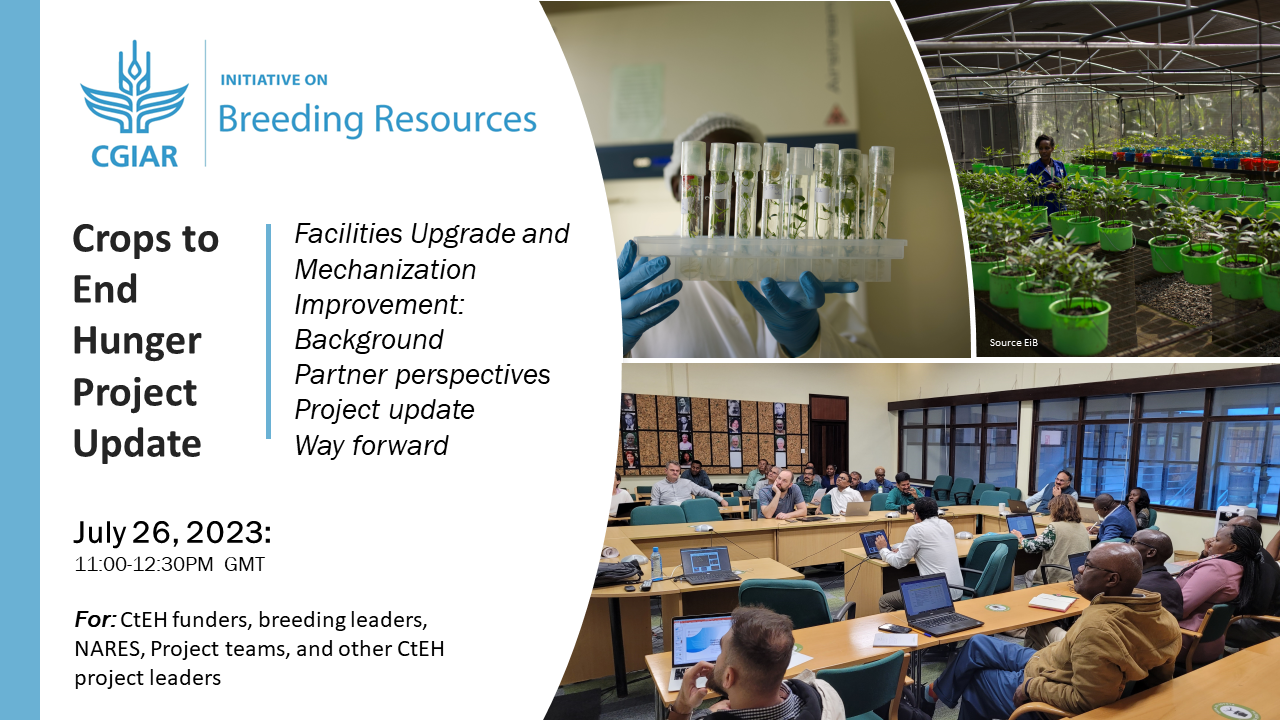
Webinar recording
About the webinar
This webinar is the first in a series aimed at presenting the different projects of the GIZ-sponsored CtEH breeding modernization grants. Projects’ teams, along with centres’ representatives will provide all relevant stakeholders with an update of the status of the various CtEH’s project.
The webinar series is inaugurated by the presentation of the CtEH’s project: “Facilities Upgrade and Mechanization Improvement”.
The objective of this webinar is to help participants:
- Understand the progress of this CtEH project so far;
- Grasp the timeline and when equipment and infrastructure will be available at different centers/stations to better plan for use;
- Identify collaboration areas where participants may support the project team.
Perspectives of beneficiaries will be heard, highlighting the relevance of the initiative. Participants will also be able to provide feedback to the project team, via a Q&A.
Agenda
| Topic | TIME | Speaker(s) |
|---|---|---|
| Introduction and Project Background | 15 mins |
|
| CtEH investment impact: Partners Perspective | 40 mins |
|
| Project update | 20 mins |
|
| Q&A | 15 mins |
About Crops to End Hunger (CtEH)
In 2017-2018, a multi-Funder group, including the United States Agency for International Development (USAID), the Bill & Melinda Gates Foundation (BMGF), the UK Department for International Development (DFID), the German Federal Ministry for Economic Cooperation and Development (BMZ) and the Australian Centre for International Agricultural Research (ACIAR), agreed to launch a modernization program for public plant breeding in lower-income countries, called “Crops to End Hunger (CtEH)”. The CtEH initiative will invigorate breeding for the staple crops most important to smallholder farmers and poor consumers. The initiative is made up of different projects which will be presented successively in the coming months.
With this new effort, CGIAR will enhance its contributions to the Sustainable Development Goals towards 2030 through high-priority staple crops tailored for the specific needs of targeted regions and their populations.